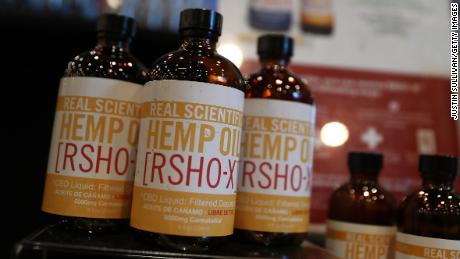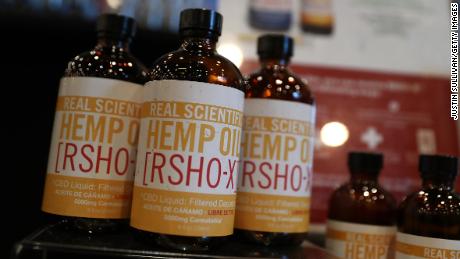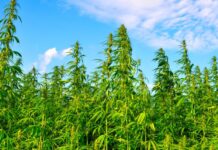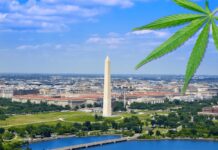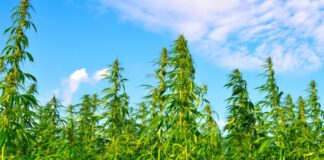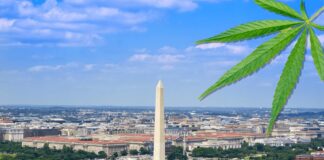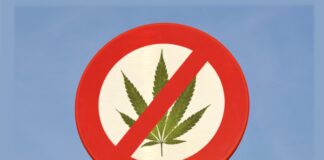Hemp legalization was tucked into the 2018 farm bill, a massive piece of legislation that also addresses issues such as nutrition, conservation, trade, energy and forestry.
The bill received strong bipartisan support, and is now headed to President Donald Trump’s desk. He’s expected to sign it into law.
Now that hemp is (almost) legal, there are all kinds of implications for farmers, researchers and consumers.
Here’s what you need to know about the plant that’s bringing together farmers, potheads and politicians.
Hemp has been treated like marijuana
For decades, the federal government has treated hemp just like any other cannabis plant. Since 1970, it had been classified as a schedule 1 drug on the Drug Enforcement Administration’s list of controlled substances, alongside heroin, LSD and marijuana. The DEA defines schedule 1 drugs as having no currently accepted medical use and a high potential for abuse.
The new bill takes hemp off that list.
The schedule 1 designation made universities reluctant to get involved in hemp research, according to Lawrence Smart, a professor of horticulture at Cornell University.
“With hemp being legalized now, those restrictions and hesitations about legal jeopardy have been removed,” Smart said. “I expect that we’ll see many more researchers willing to get involved in hemp research.”
Hemp won’t get you high
Hemp and marijuana aren’t the same thing. They both come from the same species of cannabis, but if you try to smoke hemp, you’ll probably just end up with a headache.
Sen. Ron Wyden of Oregon put it bluntly: “Federal law treats hemp like it’s a dangerous drug, but the only thing you’re going to accomplish by smoking hemp is wasting breath, time and lighter fluid.”
Hemp has extremely low levels of THC, the compound in marijuana that gets people stoned. It’s higher in CBD, a compound that many people believe helps them with anxiety, arthritis, stress and other conditions.
Hemp gets a lot of hype over CBD products such as oils, supplements and vapes. Although CBD can come from marijuana, too, it’s simpler for companies to use hemp-derived CBD because the extract is legal in all states.
It’s not just CBD, though — hemp can be used to produce all kinds of things, including clean fuel for cars, building materials, clothes, food and beer.
It’s legal to buy and sell hemp products in the United States. But because growing hemp has been so tightly regulated, the domestic market for hemp products is extremely small. So a lot of those products are imported from Europe, Canada and China.
Mitch McConnell (yes, that Mitch McConnell) led the charge to legalize it
Sen. Mitch McConnell was a major leader in getting legislation on hemp passed. He put himself on the conference committee for the 2018 farm bill. Monday, he signed the final version of the 2018 farm bill — and used a pen made from hemp to do it.
If you’re wondering how the Republican Senate Majority Leader became one of the biggest proponents of a plant once considered a cousin of marijuana, look to his home state of Kentucky.
Anti-smoking campaigns and high cigarette taxes have dealt a blow to Kentucky’s once-thriving tobacco industry.
The USDA estimated that Kentucky farmers harvested an estimated 55,000 acres of burley tobacco, used primarily for cigarette production. That’s down 8,000 acres from last year. In the 1990s, burley harvests reached above 200,000 acres.
Now Kentucky has one of the largest hemp industries in the country — and McConnell says he thinks hemp could become the state’s new cash crop.
“Kentucky has a proven track record for favorable growing conditions for hemp, and there was no legitimate reason why our farmers shouldn’t be allowed to grow the crop and capitalize on this growing market,” McConnell wrote in an op-ed for The Courier-Journal.
Hemp is one of those rare bipartisan issues, supported by both Republicans and Democrats in big farming states.
That doesn’t mean weed will become legal, too
If you’re hopeful about what this bill means for legal pot, don’t hold your breath.
This newest Congress seems more open to legalizing pot than ever, but Republicans still control the Senate. And McConnell and many other senators (from both parties) remain opposed to marijuana legalization.
It’s true that Trump hasn’t been a vocal opponent of marijuana. But he’s certainly not leading the charge to light up.
Farmers stand to win big, but it won’t be easy
With falling prices of crops, increasing debt and an ongoing trade war with China, US farmers have been struggling. Once hemp is legal, farmers will have greater access to a whole new market.
Though hemp products can easily be found in stores, actually growing it was a lot trickier. Previously, farmers could only cultivate hemp for research under pilot programs monitored by their state and the US Department of Agriculture, a provision made possible by the 2014 farm bill.
The 2018 bill loosens a lot of restrictions on hemp production, and farmers can also apply for USDA crop insurance and grant programs. The bill also specifically allows tribal nations to grow hemp on their lands.
But growing hemp won’t be as simple as growing tomatoes or corn.
The previous restrictions around growing hemp means there isn’t a good seed bank, which captures the plant’s genetic diversity. In other words, a lot of plant breeders are starting from scratch in figuring out what pests and diseases they’re up against, and how hemp fits in with the rest of their crops.
There are also concerns about what is classified as hemp — the legal definition states that the plant cannot contain more than 0.3% THC. Farmers looking to grow the crop will have to comply with regulations set by their states. Farmers in states that don’t develop plans for hemp regulation will have to abide by USDA standards.
And though the bill opens up hemp growing to a lot more farmers, not everyone gets to participate.
Anyone with a felony drug conviction is banned from growing hemp. It’s a provision that critics say disproportionately affects nonwhite people, continuing the legacy of the war on drugs.
McConnell added the felon ban to appease concerns he received from the Senate Judiciary Committee, the administration and outside interest groups, according to Politico.
“It’s ludicrous,” said Lex Pelger, head of education for the Colorado hemp and CBD company Bluebird Botanicals. “If there’s one thing we could change, that would be it.”
The CBD industry is also really excited
CBD is everywhere these days — in lattes, lotion and even dog food.
Hemp-derived CBD sales in the United States reached $190 million last year, and one report projects the CBD oil market will reach $1 billion by 2020.
Pelger predicts retailers will now feel more comfortable about jumping into the CBD game.
Though the DEA has said in recent years that it wouldn’t go after businesses and consumers over hemp or CBD, a lot of researchers and retailers were still nervous about entering the market.
“This will carry the already booming industry to the next level,” Pelger said.
The new law also makes things easier for existing CBD businesses. Pelger said it will give companies expanded access to credit card processors and advertising on major platforms.
“You can imagine running a business and having a number of tools that you need not be available,” Pegler said.
The new law is good news for consumers, too, said Pegler.
Loosening restrictions on growing hemp means more competition, more sources of hemp and, advocates hope, better quality.
Still, you should be wary of the hemp hype
There’s a lot of hype about hemp. On the farming side, people claim it’s easier to grow and adaptable to most climates. Others say it can clean contaminants from the soil and improve soil quality.
Not true, says Smart.
“Many of these things have not been properly studied in these controlled experiments and may or may not live up to the hype,” Smart said.
A lot of people swear by the health and wellness benefits they get from hemp. But because of all the restrictions hemp has been under, there isn’t a lot of research on what’s effective and what conditions hemp can alleviate.
The bill is important step because it legitimizes hemp, Pelger said. And now that it’s easier to research hemp and enter the industry, we’ll likely see more opportunities for innovation.
“It’s going to be fascinating to see what the American market does with this old, intriguing plant.”
Views: 416


